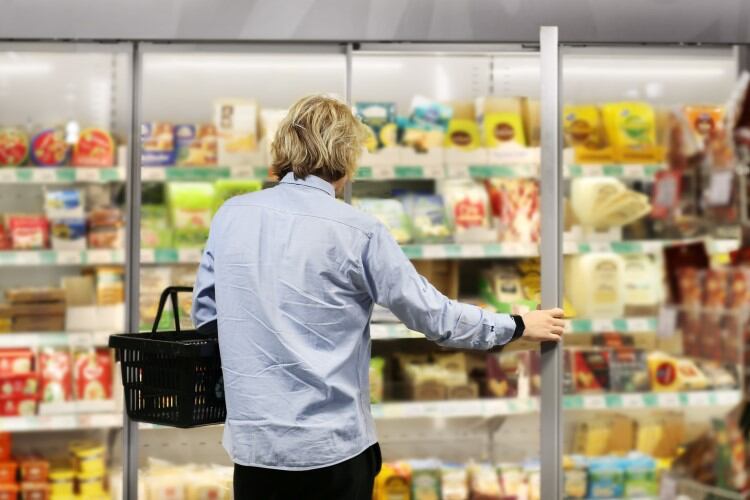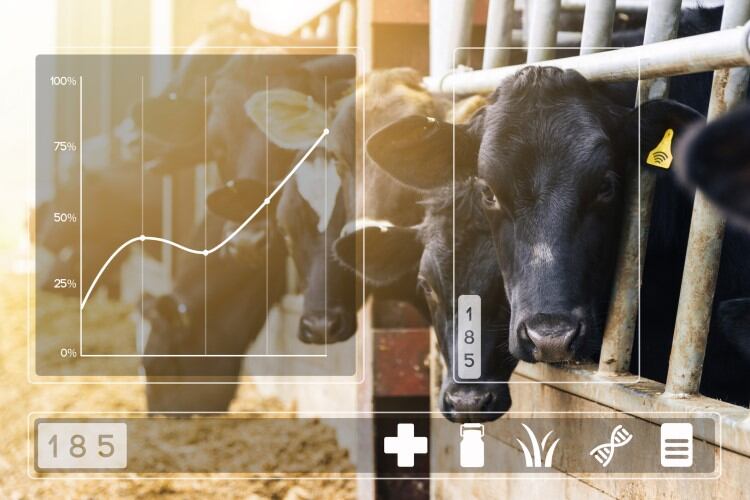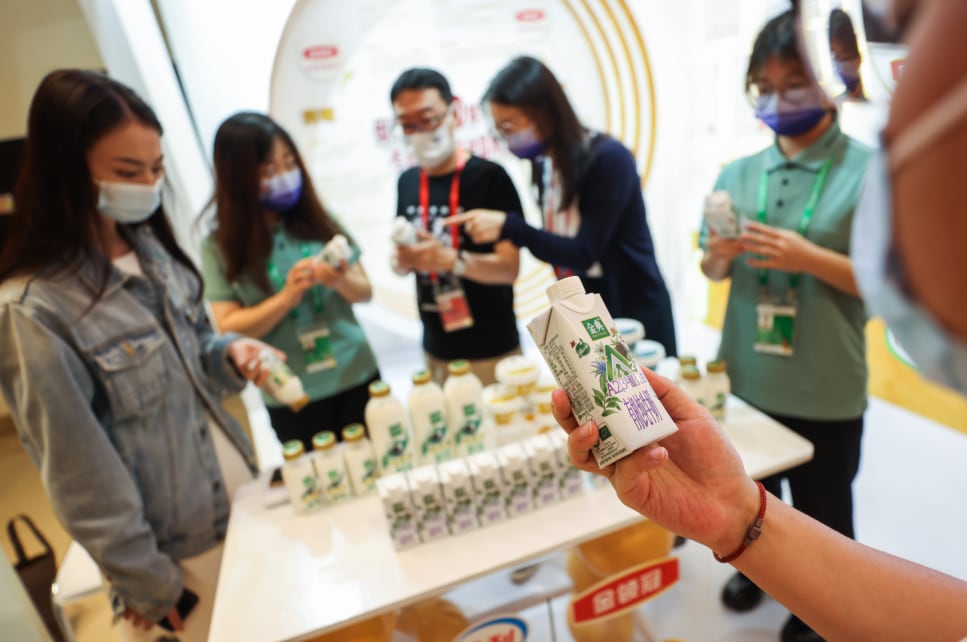dsm-firmenich’s farm-level footprinting tool Sustell can already capture animal protein production emissions data to enable manufacturers to measure and improve their environmental footprint at farm level.
But a ‘first of its kind’ partnership with software-as-a-service (SaaS) company Sustained has now made it possible for food producers to also measure the environmental impact of animal-based consumer food products, such as dairy, meat, fish and eggs. This farm-to-fork footprint reporting can guide businesses in their emissions reduction targets, NPD strategies and help in meeting regulatory and labeling objectives.
Sustainability is the primary driver in the purchasing decisions for over 70% of consumers, while around a third of the world’s greenhouse gas emissions come from food production.
David Nickell, vice-president of Sustainability & Business Solutions at dsm-firmenich, Animal Nutrition & Health, told DairyReporter that the market for farm-level environmental data platforms in animal farming has been ‘rapidly evolving’, resulting in increased reporting demands and improved collaboration with supply chain partners and regulators. To meet these expectations, the Sustell and Sustained platforms both use the EU-recommended PEF methodology as the basis for environmental footprint calculations, while Sustell is also ISO-assured. The PEF methodology encompasses 19 environmental impact categories, including climate change. “Consequently, the partnership is well-equipped to deliver harmonized and validated environmental footprint information for products and organisations throughout their entire life cycle,” Nickell told us. “Furthermore, it facilitates effective communication of results in a universally understood language to various stakeholders.
“First-generation tools, which have broadly been developed in-house, are often limited in their monitoring of environmental impacts, such as carbon or nitrogen output. This makes them insufficient in keeping pace with the increased demand for a broader set of environmental impact metrics, such as biodiversity and various greenhouse gases,” he told us. “For the evolution of monitoring platforms to keep pace - and stay ahead of - increased reporting demands, their interoperability and adaptability with supply chain partners is a crucial component – allowing for ease of compliance with ISO standards and third-party audits that are now essential for credibility.
"Some current platforms merely link to databases, while advanced ones use producer-specific data, supplementing it with reputable database information when needed.” - David Nickell, dsm-firmenich
dsm-firmenich’s Sustell, a tool for measuring emissions data from animal protein production, has now been on the market for more than two years, a period during which the service has been expanded to cover multiple species, including pigs, poultry, dairy and salmon, with plans to expand into beef and shrimp production in the near future. Nickell explained: “Sustell has been continually evolving over the past 2-3 years. Key to this has been the alignment with international advancements in recognised lifecycle assessment (LCA) methodologies and guidelines, and changing customer and value chain needs.”
To demonstrate the tool’s benefits for the sustainable outcomes of a real-world dairy company, he highlighted a collaboration with family-run dairy business Agrindus in Brazil. “Using the Sustell platform to validate and communicate its environmental footprint and leveraging this data to identify areas for improvement within the business, Agrindus has managed to successfully reduce its carbon emissions by over 10%, as a result of implementing changes based on Sustell's insights,” Nickell said.
The need for a collective effort
Asked about the challenges of translating protein-level environmental footprint data into product-level LCAs – particularly in the case of dairy products – Nickell told us: “Our partnership with Sustained has been an instrumental step in translating animal protein-level environmental footprint data into product-level LCAs for consumer food products, which would often present several challenges.
“In dairy, the diverse processing methods employed in farming and production, such as those for cheese, yogurt, and milk, vary significantly in terms of farm productivity, energy consumption, waste generation, and emissions. Geographic differences are also a key factor in delivering an LCA, with regional variations in dairy farming practices, transportation, and processing methods requiring careful consideration to produce accurate product-level LCAs.
“Additionally, the lifecycle of dairy products, across all stages from farming and processing to distribution and consumption, adds a layer of complexity to the assessment process.
"Twinned with packaging considerations, with different dairy products often requiring distinct packaging materials, each with its own varying environmental implications."
Overcoming these challenges demands 'a collective effort within the dairy industry to refine and standardize methodologies which can only be achieved through the availability of quality and credible data, he added. "Collectively, the dairy industry can achieve this by promoting data transparency and leveraging technological advancements for more accurate and meaningful product-level environmental impact assessments.”
Going forward, dsm-firmenich will be ‘actively expanding its network of partners’ to broaden the reach of Sustell across the whole value chain, from farm to fork. Nickell concluded: “This collaboration ensures that the entire value chain can work together to assess, report, and enhance the sustainability of food production.
“Our overarching goal is to facilitate a transformative shift for the entire agri-food industry towards a more environmentally conscious and sustainable food system.”




